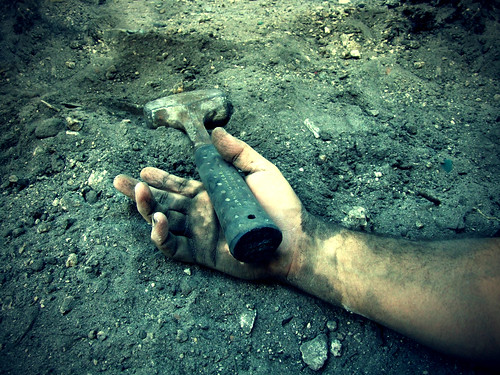
So I’ve been noticing a recurrent theme in my life, and it was brought up again in a recent New York Times column called Slumdog Tourism. The column discusses tourists who travel to slums in developing counties to see poverty first-hand. Presumably, these tourists are caring people who just want to understand the poverty behind the charities they generously donated to or have seen on TV, but the article argues that these tourists are harmful to the cause. The people who live in the tourist destinations are degraded and all they get in return is a little bit of pity money.
This reminds me of a famous quote by Martin Luther King Jr.:
“I have almost reached the regrettable conclusion that the Negro’s greatest stumbling block is not the White Citizens Council-er or the Ku Klux Klanner, but the white moderate who is more devoted to order than to justice. Shallow understanding from people of good will is more frustrating that absolute understanding from people of ill will.”These tourists are exactly the prototype for people King was frustrated with. They are probably just looking for an easy way to satisfy their conscience or to give off the impression that they care about global issues. They just want to read the latest New York Times bestseller about poverty reduction, donate some cash to a new trendy non-profit, throw around some statistics about AIDS, and generally seem like they care.
I know this because I am one of those tourists. It’s way easier for me to give people who are homeless some money or food than to engage in their lives and daily struggles.
I read a wise line from Shane Claiborne’s inspiring book, The Irresistible Revolution the other day that said,
“Reducing poverty is big business, eliminating it is revolutionary.”These days talk about poverty and donating to charities is at an all-time high. Helping people and creating a better world seems to be on everyone’s mind. Which is great, but it’s almost becoming a “pop sensation,” highlighted by the recent Haiti earthquake where people all over the world donated their hard-earned money to the relief cause. It’s great that people made that first step to write a check for Haiti, but who still thinks about that little country? Where are the people who are willing to get their hands dirty, and engage with poverty for the long-term and really work to eliminate it?
I want to learn to have such compassion, and I know that such compassion can’t be born overnight, but rather developed over time. I guess the key is to be patient, and take small steps to try to engage yourself in a community and learn about their needs, hopes, and desires. To try to understand, and really care for people.
from ken
Are you trying to change your life? I'd love to hear about it! ken.e.noguchi@gmail.com
photo by Aaron Escobar
Thanks for taking a good look at yourself. A good friend of mine says "you've gotta love yourself enough to look at yourself." because sometimes we don't see what we hoped we would. It is a courageous step.
ReplyDeletemy step-mom calls these people arm-chair activists: people who want to speak about, and throw money at, important issues, but also sit back and enjoy a nice bottle of 50 year scotch.
one way to move from tourist to revolutionary is to work within our own communities and lives to find the hidden things we do that actually impoverish others: food choices and consumer choices are big ones.
There is magic in the ripple out effect. How one fair trade organic banana employs a family at a fair wage and helps their earth, instead of keeping them in a cycle of poverty and arable land destruction.
Often times, big North American business is what is harming the "third world". Once we find ways to stop taking advantage of their difference in technological development, we can actually help them find their own, regional self-sufficiency.
I'm so glad you brought up food and consumer choices! Now that I have my first "real" post-college job and have some income, I'm trying to educate myself on helpful consumer and food choices. I'm trying to focus not just on what is cheapest, but what actually helps food producers and develops good food practices. I still have a lot to learn!
ReplyDelete